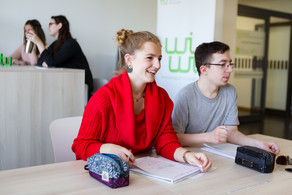DFG funding for research project of junior professorship Economics 2

Learning about the Causes of Monetary Returns to Education across Educational Trajectories
With this research project, we want to give deeper insight about how monetary returns to education develop over the life course. A new dataset containing information about school openings in Germany allows us to use local changes in school supply on the municipal level and estimate causal effects of attending a Gymnasium (academic track school) on wages. The link between survey data and administrative register data with information on wages and labor supply should serves as the data basis.
Specifically we want to answer in particular two research questions. First, we want to analyze in how far academic track and university education complement each other. Thereby we answer the question if attending a Gymnasium is only the requirement for university education or if the abilities taught at these schools are valuable themselves. For this purpose, we want to apply a newly developed causal mediation analysis that uses both school openings and university foundations as instrumental variables to separate both educational effects from each other.
The second research question we examine focusses on the explicit changes in the returns to academic track education along the employment course. In perfectly competitive labor markets where the marginal productivity of employees is observed by firms, changes in the returns to education must be driven solely by changes in the marginal productivity. However, the marginal productivity of employees directly after entering the labor market is not or only hardly observable for employers. Therefore changes in the returns to education can also be caused by a learning process of employers. The purpose of this project is to estimate this learning process with econometric methods.






